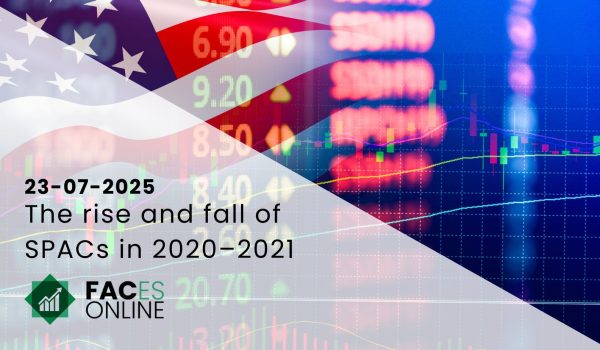Dr. Alberto Manconi has the reputation of giving interesting and interactive lectures; a perfect fit for Chairman of the Day during iFinance 2015. The following article, written by Dr. Manconi, is his consideration of the topics discussed during the event.
Whenever I face the trite refrain that finance is “too large,” I observe that it was likely the largest industrial sector in Renaissance Florence (Medici bankers ruled the city!), the cradle of cultural renewal which got us out of the Dark Ages. So I do believe finance affects innovation, mostly in a good way – today we discuss whether it can also hinder it, how, and what we should do about it.
Among the general public, much blame for an alleged innovation slowdown (and many other ills) goes to investor short-termism:[1] Shareholders expect quick results, but innovation is all about the long-run, so excessive reliance on external finance hampers progress. While this view has its merits, I’d like to raise two caveats. First, not all shareholders have equal horizons: There are deep, “structural” reasons why a pension fund may have longer horizon than a mutual fund (e.g. their respective retail investor pools). Innovative companies might simply turn to longer-horizon investors. Second, shareholder horizon affects corporate investment in a less direct way than, say, managerial incentives. For instance, a recent study[2] finds that managers are more likely to innovate when they face weaker labor market penalties for failure – i.e., when they have a freer hand to take risk.
Risk, of course, is a double-edged sword. Yes, we want companies to take risk to innovate. However, we don’t want to promote risk-taking to the point of creating instability. Hence the debate on the recent changes in bank regulation and supervision, which we also discuss today. Will Basel III limit banks’ ability to lend, thus placing a constraint on corporate innovation? I admit, that is a possibility. However, banks are not necessarily the primary source of financing for innovative firms – just think of venture capital.[3] Further, addressing risk in credit markets, especially in the aftermath of the recent financial crisis, promotes trust – a second, essential ingredient to innovation.
The topic of regulation brings me to my last point, the first we discuss today, and potentially the most controversial: What is the government’s role in all this? As an economist, my “Pavlov reflex” is to say that the government should simply create a good set of institutions, and then stay well out of the market. The question is just what is a good set of institutions? Does it involve additional channels for financing innovation, e.g. concessionary loans, tax breaks, etc., or are the existing channels adequate? Should the government promote innovation in certain sectors deemed more relevant, or should it let the market decide? Or, rather, should it focus on the premises of innovation, e.g. education, developing an entrepreneurial culture, etc.? These are very broad and deep issues, way too broad and way too deep to address in this short note – but I look forward to our discussion of them today.
[1] E.g. Denning, S., 2014, Why Financialization Has Run Amok, Forbes 3 June 2014, available at the URL: http://www.forbes.com/sites/stevedenning/2014/06/03/why-financialization-has-run-amok/ (last accessed: 29 December 2014).
[2] Custódio, C., M. Ferreira, and P. Matos, 2014, Do General Managerial Skills Spur Innovation?, Working paper, Arizona State University.
[3] Cf. Kortum, S., and J. Lerner, 2000, Assessing the Contribution of Venture Capital to Innovation, RAND Journal of Economics 31, 674-692; or more recently Popov, A., and P. Roosenboom, 2012, Venture Capital and Patented Innovation: Evidence from Europe, Economic Policy 27, 447-482.
















